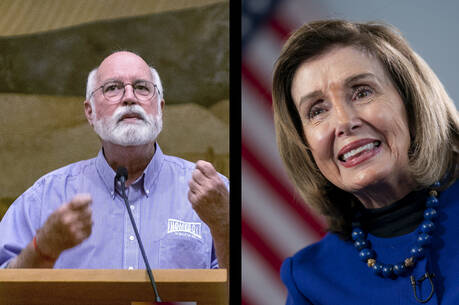A Reflection for Friday of the Seventeenth Week in Ordinary Time
Find today’s readings here.
“Where did this man get such wisdom and mighty deeds?
Is he not the carpenter's son?”
The etymology for the word prophet in Latin is pro (to come before) and phetas (to speak). In Hebrew it is navi, to proclaim, call or summon, and in Greek it is propheteia, a person who can interpret the will of God. The prophets who came before Jesus in the Bible often met gruesome ends, from John the Baptist’s decapitation, to Isaiah being sawn in two, to Jeremiah being thrown into a well before he was later stoned to death. The message is clear: Prophecy is a high-risk endeavor.
What has always struck me about today’s passage is how surprised the citizens of Nazareth are that Jesus is a prophet. The carpenter’s son, it seems, didn’t show much promise in his youth, or at least his family were such humble, working-class types that the shock was real when he demonstrated a real aptitude for teaching.
Jesus’ fellow Nazareans turn against him because they fail to understand that a prophet can come from anywhere, including their own synagogue and their own village.
As a person who works in academia and also comes from a working-class family background, I can relate to how Jesus must have felt meeting this kind of snobbish attitude. Colleagues who grew up in privilege and attended Ivy League schools are often surprised to discover my father was a mail carrier and toll taker on the Bay Bridge in his youth, that my mother taught elementary school, that my grandmother grew up on a ranch, or that my grandfather was a bank teller. Our social bias against people from humble origins, it seems, isn’t anything new. Sometimes we even turn this against our own friends and family. But in doing so, we risk missing prophetic voices.
Jesus’ fellow Nazareans turn against him because they fail to understand that a prophet can come from anywhere, including their own synagogue and their own village. From Malala Yousafzai to Greta Thunberg, from Dan Berrigan, S.J., to Dorothy Day, from James Baldwin to Frederick Douglass, modern prophets share in Jesus’ experiences of rejection, disbelief, violence and danger.
Earlier this summer during an Angelus, Pope Francis told the assembled crowd that “"A prophet is each one of us,” and that we should daily ask ourselves how our prophetic work is going. Prophecy, as it turns out, is not about where we come from or how we got our start, but about how we communicate with the world. And, as today’s readings remind us, it’s also about how we listen.








